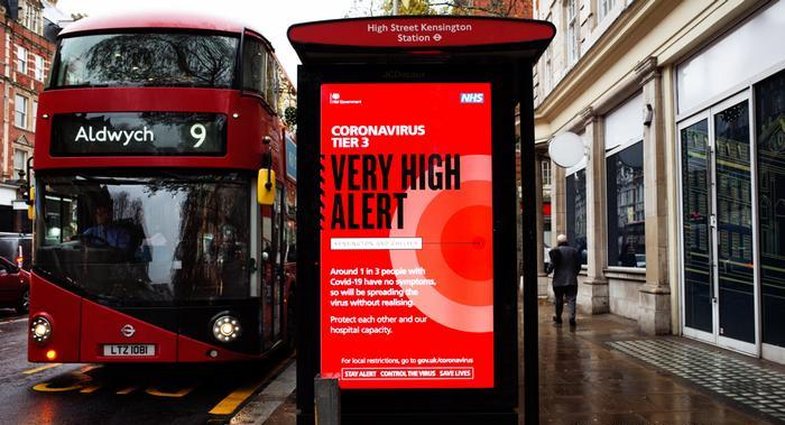
The British government has announced that the newly identified strain of coronavirus is up to 70% more transmissible than the original form of the pathogen.
This has led to an increase in cases and hospitalizations across London and surrounding areas, prompting the government to impose a new set of restrictions in an effort to prevent Covid-19.
What is known so far about the new species?
This version of the virus spreads much more easily among humans as a result of a series of mutations that have been identified in the genetic coding of the pathogen. However, it is not believed to cause more severe disease than Covid or higher mortality rates.
The government's chief scientific adviser, Sir Patrick Vallance, said the analysis showed the new variant contained 23 genetic changes.
Does this mean that the vaccine will not be effective?
Fortunately, the vaccine is still valid and effective.
Vallance said that the research done supports the idea that the vaccine will be suitable for this variant of the virus.
Daniel Altmann, a professor of immunology at Imperial College London, said that "the immune response elicited by doses of Covid-19 will be unchanged by mutations, so the vaccines will still work."
How widespread is the new type?
For now, the new variant seems to be concentrated in and around the south of England.
Overall, case rates across the UK rose by more than 50 per cent between 29 November and 13 December, driven by the new variant.
Why did the mutation occur?
Viruses change all the time.
Simon Clarke, a virologist, says the coronavirus has mutated many times in recent years.
"This occurs as a result of errors in copying viral genetic material, leading to small changes in the virus proteins."
Transmission of a virus between different species also helps foster changes in the genetic coding of a virus.
Dhe presionet e përgjithshme mbi patogjenin, siç është shfaqja e një vaksine, mund të sjellin evolucione të dobishme që i lejojnë asaj të përshtatet dhe të mbijetojë.
ëendy Barclay, shefi i departamentit të sëmundjeve infektive në Imperial College thotë se “pritet që mutacionet të ndodhin, ndërsa virusi përsëritet”.
Si kanë reaguar shkencëtarët ndaj virusit të ri?
John Edmunds, profesor në Qendrën për Modelimin Matematk të Sëmundjeve Infektive, Londër, shprehet:
“Duket sikur ky virus është dukshëm më infektues sesa llojet e mëparshme. Kjo do të thotë që për ta kontrolluar atë do të duhet të vendosim masa shumë më kufizuese. Më vjen keq të them se na presin kohë të vështira, por sa më shpejt të fillojmë dhe sa më të vendosur të jemi, aq më shpejt do të mund ta kontrollojmë këtë virus të ri.”
Paul Hunter, a professor of medicine, said: "It is inevitable that the new variant will spread throughout the UK and transmission rates will continue to rise."
Ravindra Gupta, Professor of Clinical Microbiology at Cambridge, said:
"The variant has a number of disturbing mutations which means we have to control transmission through social constraints as we work to learn more about the impact of these mutations on how the virus behaves."
Recommended articles:
Source: The Independent







